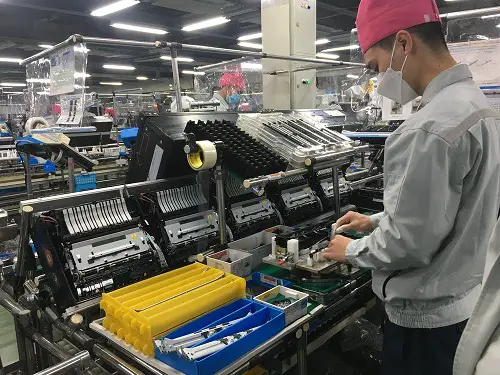One of the biggest headaches afflicting Russia following the invasion of Ukraine is the fact that as foreign companies pull out, they reveal that much of Russia’s technology is run off software provided by the West. As Western countries pull out, Russia is having trouble sourcing software to replace what is being removed.
Between international sanctions, and some companies’ arbitrary decisions to cease doing business in Russia, companies from Siemens AG to SMS Group GmbH have spun down their Russian operations, to pull out of what was once one of their biggest markets. As they pull up stakes, Russia is finding that sourcing software for computer-aided design and manufacturing is dragging on development projects, according to Elena Semenovskaya, a Russia-focused analyst at IDC.
Semenovskaya said, “Russian analogues in this area are much weaker and the need is high. But for now the approach is to rely on piracy and outdated copies, which is a dead-end and not sustainable.”
According to Sergey Dunaev, the chief information officer of Severstal PJSC, industrial machinery is often delivered with special software installed to control the high-precision processes. The manufacturers of the equipment will view the software as proprietary intellectual property, and will not give purchasers access to the source codes used to run their own plants, and this creates a multitude of problems.
One such problem is in metal working, There, tolerances are tight, so even a deviation a few hundredths of a millimeter out of spec on a part can mean the part is rendered useless. The compatibility of software with the machinery it runs is thus critical.
While Russia implemented a program of import substitution after many industries suffered from an earlier period of sanctions following Russia’s annexation of Crimea, the program failed to factor in how much of modern manufacturing relies on computer programming.
As Russia invested roughly US $59 billion in its steel industry alone, following the post-Soviet decline, much of that was spent on tooling and machinery supplied by western companies like Siemens, SMS Group, and Danieli & C. Officine Meccaniche SpA.
While these machines increased efficiency dramatically, they also were run by software which would only remain operational so long as those companies were willing to continue their business relationships within Russia. As those companies now pull out, Russia needs to source software capable of doing what was previously done by the software from the western companies.
Dunaev said, “All industries are facing the same problems. Many processes in modern units are controlled by software.”
First Deputy Energy Minister Pavel Sorokin says, that the challenge is especially difficult for Russia’s oil and gas industry, where only 5% to 10% of industry-specific tools are controlled by domestic software, and the domestic software alternatives are often, “sub-optimal.”
On top of that, as Russia has depleted its traditional oil deposits, producers are forced to try and tap harder to recover reserves which require more complicated machinery run by more complicated programs in order to maintain output quantities.
Sorokin said, “Super-sophisticated software for seismic, for modeling layers, drilling and hydraulic fracturing won’t be needed if we won’t have equipment for all those processes.”
The problem even extends to local food production. One of the country’s biggest agricultural operations, Agro Plc, relies on imported manufacturing execution systems, or MES, at its meat processing facilities.
Maxim Basov, chairman of Ros Agro Plc, said, “We are critically dependent on European companies in terms of MES, and we do not yet know what to do if something happens.”
The problem is made worse by the fact that since the software runs physical equipment, a software failure could lead to damage to the physical equipment, for which replacement parts are no longer available from the manufacturer, and thus will be extremely difficult to source, and increasingly expensive.
In addition, the break with western technology companies has stalled the Russian shift over to a 5G mobile network, worrying many that Russia’s economy will lose its competitive edge while other countries are seamlessly upgrading their infrastructure.
New software will not simply create itself. Russia will now set about trying to recreate all the technologies of the west. Dmitry Komissarov, the developer of Microsoft Office’s Russian replacement, MyOffice, notes it took almost a decade and $100 million dollars to create an alternative to Microsoft’s ubiquitous Office suite of software.
Komissarov now notes of Russia’s software woes, “It is necessary to take a look at inventory and determine what solutions are missing, and then start developing them.”


